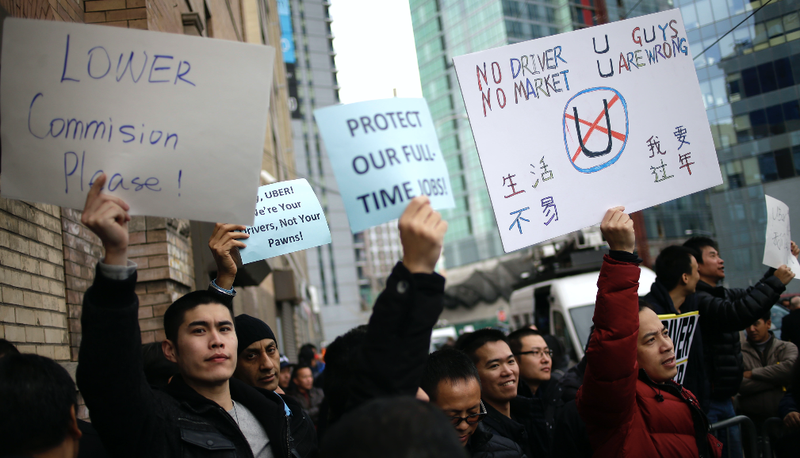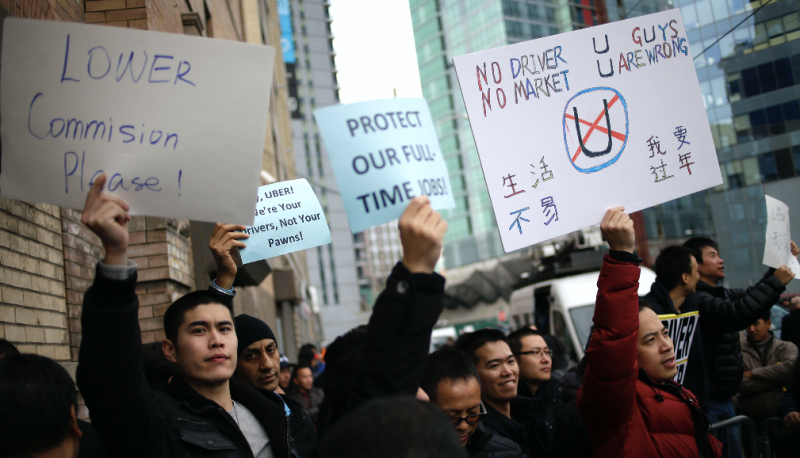
After settling two big lawsuits where drivers claimed Uber did not allow them to accept tips, Uber agreed to not get in the way of the practice any more. There was even speculation that Uber might start encouraging the act. Today, the on-demand ride app has answered that speculation with an unequivocal middle finger to its drivers: “Tips are not included nor are they expected on Uber.”
In the two class-action lawsuits, drivers accused the company of violating labor laws by discouraging tipping. As part of the settlement, Uber agreed to allow its drivers to ask for and receive tips, a seemingly big stride for a company that has a terrible track record for poor labor practices.
But in an email that went out to some customers today, which is also posted on Uber’s public policy blog on Medium, the company asserts that tipping has never been part of its policy:
Advertisement
Nothing has changed. As we’ve said for many years, being Uber means you don’t need to tip. Of course, if you want to tip your driver—we estimate riders offer tips on only a very small number of trips—you’re free to do so, and drivers are free to accept.
When Uber started six years ago, we thought long and hard about whether to build a tipping option into the app. In the end we decided against including one because we felt it would be better for riders and drivers to know for sure what they would pay or earn on each trip—without the uncertainty of tipping.
Today, riders tell us that one of the things they like most about Uber is that it’s hassle-free. And that’s how we intend to keep it.
The post on Medium goes on to explain why tipping is troublesome for any type of service-based industry—which is true—but in Uber’s case the company claims it engenders inequality: Tipping might mean that two drivers make substantially different amounts for the same trip, or that drivers might spend more time picking up passengers in wealthier parts of town.
Okay, maybe. But sending an email to customers effectively telling them not to tip their drivers is also a problem.
Sponsored
Uber has built its business model by discouraging the practice of tipping at the expense of workers. Beyond the obvious losses drivers incurred because they didn’t receive the customary gratuity for their work, the suits claimed that Uber enriched itself by marketing its service as gratuity-free: Passengers were led to believe that gratuity was included in their cheap fares—when in fact this isn’t true.
The life of an Uber driver is very precarious. The company treats drivers as contractors to avoid paying benefits, and it routinely discounts fares while subtracting higher fees. Drivers don’t have any control over how much they make, and like chronically underpaid workers in other industries, tipping is a way to make up some of the difference.
Of course the ideal situation would be that Uber would pay its drivers a fair wage (and benefits) so riders wouldn’t have to tip at all. Although the settlement last week keeps drivers in California and Massachusetts classified as contractors and not employees, the idea that Uber was officially encouraging the practice of tipping was a promising step forward. But sending an email to its customers that basically tells them they don’t have to, well, that totally undermines the spirit of the agreement.
[Uber]
Advertisement















